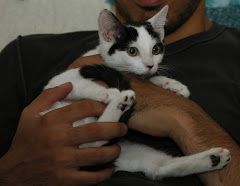I have always thought that Emily was much more eloquent speaking about class and privilege. I’ve always found it difficult to talk about the privilege inherent in the way I was raised, mostly because at the time I didn’t realize it was there.
I grew up in the same small town as Emily, although we didn’t meet until we attended the same public high school. We had very little in common when we met, same town or not. I grew up in a six-bedroom house on an acre and a half next to a large estate with 30 acres of land. My mother didn’t work outside our home once my parents had me until my brother and I were both almost in middle school. My father was throughout my childhood a clinical psychologist, a stock broker, a personal pilot, part-owner of a minor league baseball team and I had several friends who were certain that he must work for the CIA (this has never been disproven.)
My mother placed great value in books and read to me in both English and French when I was little (she was a French major in college and taught for a while). My father spoke a great deal about books being important, but never read himself. My parents had been big travelers before I was born and when I was born, they brought me along. I got my first passport when I was three months old. By the age of three, I had been to almost every European country.
I attended a private Quaker school from the age of 5 until the end of middle school. I chose a public high school because I wanted something more than I could find with the same twenty kids I’d been going to school with for the last ten years. My first sense of class came from discovering in middle school that one of my friends was on something called a “scholarship”. I was not entirely clear on what that was. In elementary school I took ballet, horseback riding, gymnastics and piano lessons. This was average at my private school.
Looking back at my childhood from a position of much greater understanding of class and privilege than I had for most of my life (although I am aware even the understanding I have now comes from a privileged place), I am struck by how stereotypically white, upper middle-class WASPy suburban my family looks. And from the age of twenty-seven and with significantly more historical context to my family than I used to have, I have to nod my head in appreciation to my father, who made a decision at a young age and did such a good job living up to it that I was in high school before I realized that our last name was recognizable Jewish.
My father was raised in a conservative Jewish household. They attended temple and lived in a mostly Jewish neighborhood. My grandfather was an immigrant from Latvia when he was fifteen. My father’s older brother attended the local public school and was bar mitzvahed. However, my grandfather was a teacher at a private boarding school that was viewed a feeder school for Yale. Unlike my uncle, my father attended the school my grandfather taught at, the only non-Christian, poor, scholarship kid at the school. Although I don’t know this for sure, my guess is that he saw what all his classmates had and how his family lived and decided he wanted to be a WASP too. He somehow convinced his parents that he didn’t want to be bar mitzvahed and then he went on to separate himself as far from his origins as he could manage. He went on athletic scholarship to a very good school (although, ironically, I think, not as good as his father and brother, who both went to Yale). He married a good Methodist girl from a thoroughly English family. He learned the stock market in the early 1980’s and put aside the money he needed to substantiate his new image. He sent his children to a private Quaker school and even went so far as to become Quaker with the rest of our family when I was ten. As Emily said in her post about privilege, he even managed to get himself onto something called the gentleman’s auxilery, the premiere in WASPy credentials in my book.
Emily said in her post, “Class is something you inherit, something that comes to you from your parents, and something you give to your children.” And she is absolutely correct. My father was given a certain class from his parents. And it was this lack of privilege that he rebelled against. He rejected it outright. He chose an entirely new class status for himself and he has forced his life and his circumstances to reflect his choice. He took this new class status and he inculcated this reality he had created into his children. And I am choosing to do the same thing with my children. Our children will know their heritage, where they came from. They will not be in high school when they discover that the first half of their last name is Jewish. We will teach them to celebrate the diversity of their class background, on all sides of their family and then they will have the choice to do with it what they will.
Subscribe to:
Post Comments (Atom)





1 comment:
What excellent, insightful posts. Thank you for the food for thought.
Post a Comment